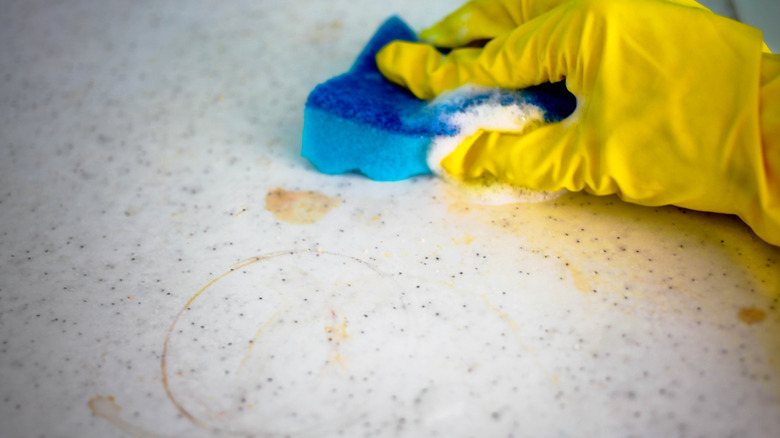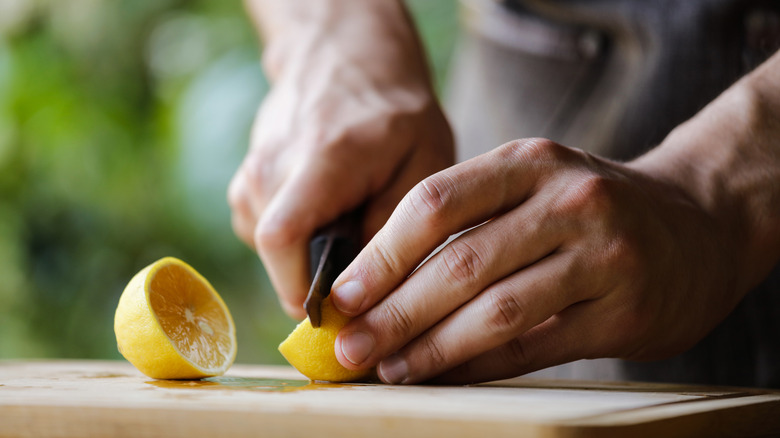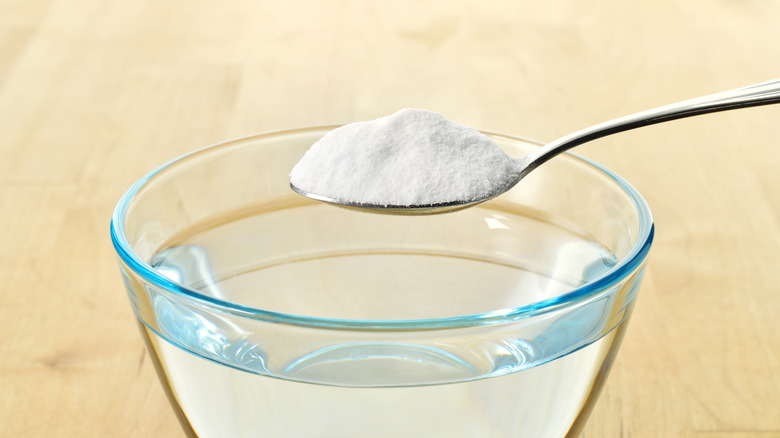Can You Really Use Lemon Juice To Get Rid Of Tough Countertop Stains?
Spills happen, and if you don't clean them up in time, they can cause marks and stains. While you may have heard that lemon juice is a good way to banish blemishes from your kitchen countertops, you should be wary. The truth is that lemon juice can actually damage countertops crafted from natural stone such as granite, marble, or quartz. You may prefer using natural ingredients over chemical cleaners for environmental reasons, or because you have a lot of allergies, but it's best to skip this particular ingredient.
The way lemon juice is supposed to work as a cleaner is that the acid from the lemon will break down the stain, allowing you to wipe it away. However, the reality is that this is one hack you shouldn't try. Limestone and marble are particularly prone to being damaged by acid, whereas the risk for granite is a little less. Still, any natural stone countertop will be expensive to repair if the lemon juice causes damage or discoloration, not to mention that it may not even remove the mark.
Steer clear of this natural cleaning ingredient if you have natural stone countertops
Natural stone countertops are often sealed for extra protection. If you attempt to clean away a stain with lemon juice, the acid found within the lemon has the potential to break this seal. Once broken or affected in any way, the seal can no longer adequately protect the stone beneath, which can then lead to major damage. Even if the amount of lemon juice used is minimal, you could still have caused some invisible issues.
The high acidity of lemon juice can make your countertops discolored, too. Even if only one part is affected, it will be very difficult to replace this area if it does show signs of discoloration. Lemon juice additionally contains calcite, which can cause irreversible damage both on and under the surface of your countertops. Though you may not want to use chemical cleaners to get rid of marks and stains on your countertops, there are better alternatives to using lemon juice.
Make marks vanish with this alternative method
The next time you see a mark on your countertop, try the following stain removal method instead of reaching for a lemon. Grab some baking soda and mix it with water until a paste is formed. Using a soft sponge (stay away from hard bristles or sponges as they can scratch the surface), apply the paste carefully to the mark. Work it in with another clean cloth, preferably microfiber, and then remove all residue with a damp cloth — be careful not to oversaturate the cloth with water, as this could then cause water stains if the excess is absorbed by the stone.
If the stain persists, don't start scrubbing harder, or trying a rougher sponge/cloth. Simply make the above paste but leave it for a few hours or even overnight for it to work its magic. Just make sure you have removed it all when time's up. Finish by wiping with a clean soft cloth for a gleaming surface.


